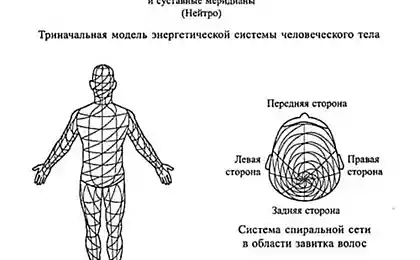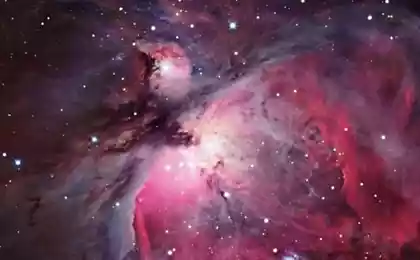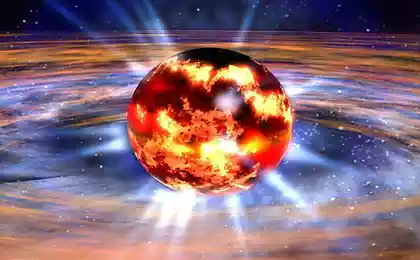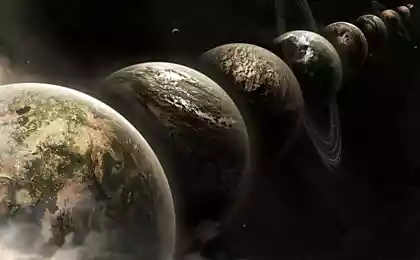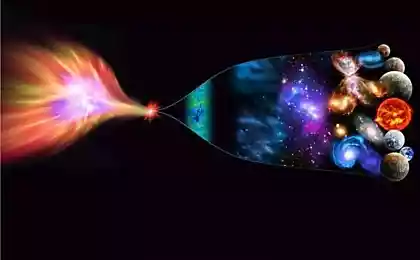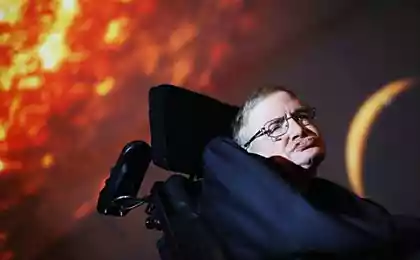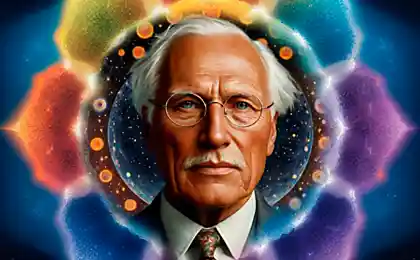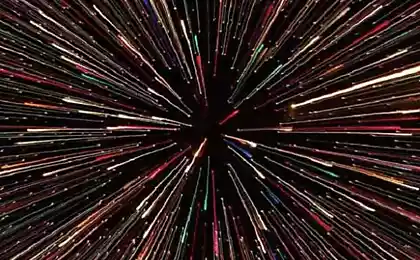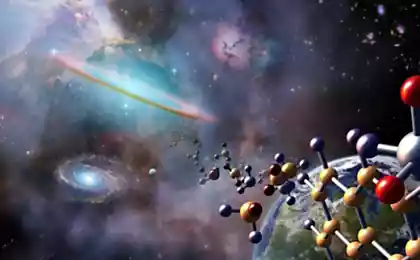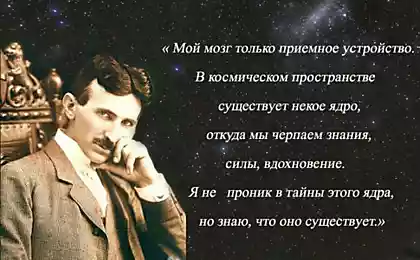683
Universe: the four main ways
Science identifies four major ways in which the universe has to meet its destiny. It's a Big Freeze, Big Crunch, Big Change and a Big Gap. If you do these names say nothing, wait and see. You should not be surprised by the fact that our planet is doomed. It will take a little time, only 6 billion years, and Earth will probably be vaporized when the Sun will expand to a red giant and engulf our planet.
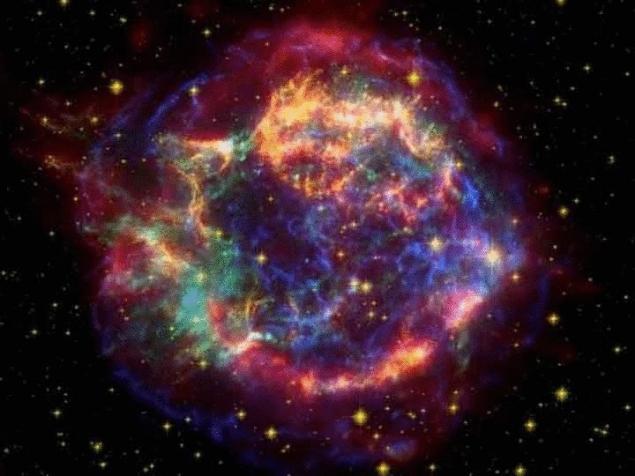
But the Earth is just a planet in the Solar system, the Sun is one of hundreds of billions of stars in the galaxy and in the observable Universe hiding hundreds of billions of galaxies. That is prepared for all of them? As you wind up the universe?
Science can only guess about how it will happen. We don't even know exactly how the universe will die in a certain way or just slowly come to naught. Our best understanding of physics leads us to several options for the global Apocalypse. It also gives us a few tips about how in principle it would be possible to survive.
The first hint of possible end of the Universe comes to us from thermodynamics, the science of heat. Thermodynamics is the physics of a preacher, wild-eyed, holding a cardboard banner with a simple warning: "Heat death come."
Despite its name, heat death of the Universe does not appear to be a fiery hell. On the contrary, it is the death of all levels of heat. Doesn't sound very scary, but heat death is worse than bake to a crisp. This is because almost everything in daily life requires a certain temperature difference, directly or indirectly.
For example, your car works because inside the engine they're warmer than outside. The computer runs on electricity from the local power plant, which probably works by heating water and heat to the turbine. You eat food that owes its existence to a giant temperature difference between the Sun and the rest of the Universe.
When the universe reaches heat death, there will be one temperature. This means that nothing interesting will never happen. All the stars will die, all matter will disintegrate, it will become a rare soup of particles and radiation. Even the energy of this broth will decrease over time as a result of expansion of the Universe, leaving everything with a temperature barely above absolute zero.
In this process, the Big Freeze, the universe will become uniformly cold, dead and empty.
After the development of the theory of thermodynamics in the early 1800-ies, the heat death looks like the only possible way to end of the Universe. But after 100 years of General relativity Einstein declared that the Universe can be a much more interesting fate.
General relativity says that matter and energy bend space and time. This relationship between space-time and matter-energy between the stage and the actors on it — applies to the entire Universe. All that is in the Universe, according to Einstein, determines the ultimate fate of the Universe itself.
The theory predicts that the universe as a whole must either expand or shrink. She can't stay in the same size. Einstein realized this in 1917 and didn't want to admit that he abandoned his own theory.
Then in 1929 the American astronomer Edwin Hubble discovered irrefutable evidence that the universe is expanding. Einstein changed his mind, calling his previous insistence relatively static Universe "greatest mistake" of his career.
If the universe is expanding, it had to be less than it is now. This realization has led to the emergence of the Big Bang theory: the idea that the universe started from an incredibly small point and expanded rapidly. We can see this in the "afterglow" of the Big Bang — the cosmic microwave background is the constant stream of radio waves coming from all directions in the sky.
It turns out, the fate of the Universe depends on a very simple question: will the universe continue to expand and how quickly?
For the Universe, containing the regular "stuff" — matter and light — the answer to the question depends on the amount of stuffing. More toppings means more gravity, which pulls everything back and slowing the expansion. While the number of fillings does not exceed the critical threshold, the universe will expand forever and will eventually die a heat death.
But if the filling is too large, the expansion of the Universe will slow down and stop. Then the universe will start to shrink. Shrinking universe is getting smaller and smaller, getting denser and hotter, until it's all over in a colorful compact hell, the opposite of the Big Bang and is known as the Great Compression.
Throughout the greater part of the 20th century, astrophysicists were not sure which of these scenarios will have an effect. A big Freeze or a Big crunch? Ice or fire? They attempted a cosmic census by counting the number of fillings in our Universe. It turned out that we strangely close to the critical threshold, and our fate remains in question.
In the late 20th century, everything changed. In 1998, two competing groups of astrophysicists made an incredible statement: the expansion of the universe is accelerating.
Ordinary matter and energy could not affect the Universe that way. This was the first evidence of the existence of a new fundamental form of energy, "dark energy" that is absolutely mysterious to us.
Dark energy pushes the Universe in hand. We don't yet understand what it is, but about 70% of the energy of the Universe, dark energy accounts for, and this number is increasing day by day. The existence of dark energy means that the amount of toppings in the Universe determines its ultimate fate. Space controls dark energy, it accelerates the expansion of the Universe. Therefore, the scenario of the Big crunch is unlikely.
But this does not mean that the Big Freeze is inevitable. There are other possible outcomes.
One of them was not in the process of studying the cosmos, and of the world of subatomic particles. This is perhaps the most strange of the possible fates of the Universe: something fantastic and likely.
In the classic science fiction novel by Kurt Vonnegut "cat's Cradle", "ice-nine" is a new form of water ice with interesting properties: it is formed at a temperature of 46 degrees, not 0. If a crystal of ice-nine to drop in a glass of water, the water around the crystal takes its form as its energy is lower than that of liquid water. New crystals of ice-nine will do the same with the water around him, and in an instant the chain reaction will turn all the water in the glass or in the oceans of the Earth into solid ice-nine.
The same thing can happen in real life with normal ice and normal water. If you type in a very clean glass very pure water and cool it below zero degrees, the water will be supercooled to remain liquid below the natural freezing point. Water does not contain any impurities, the glass has no irregularities that began to form ice. But if you drop an ice crystal into water, the water will quickly freeze as ice-nine.
Ice-nine and supercooled water may seem little connected with the fate of the Universe. But something similar happens to own a space. Quantum physics says that even in an absolute vacuum there is a small amount of energy. But then there must exist another type of vacuum with less energy. If so, then the whole universe is like a glass of supercooled water. And it will remain so, until the "bubble" of vacuum with low energy.
Fortunately, we don't know these bubbles. Unfortunately, quantum physics says that if low-energy vacuum possible the bubble with such a vacuum would inevitably appear somewhere in the Universe. When this happens, it is like the story of ice-nine new vacuum "converts" the old vacuum around. The bubble will grow at the speed of light, and we'll never see it coming. Inside a bubble, everything will be completely different and clearly not welcoming. Properties of fundamental particles like electrons and quarks can be absolutely other, rewriting the rules of chemistry and, possibly, prevent the formation of atoms. People, planets and even the stars themselves can be destroyed in the process this Big Change. In working 1980, physicists Sidney Coleman and Frank de Luccia called it a "global environmental disaster".
After the Big Changes and the dark energy will behave differently. Instead of having to push the expansion of the Universe, dark energy can suddenly collapse the Universe to itself, causing her to collapse into a Big Compression.
There is a fourth possibility, and again, dark energy occupies a Central place. This idea is very controversial and incredible, but don't discount it. Dark energy can be much more powerful than we think, and in itself to cause the Universe to end without any Big Changes, Freezing and Contraction.
Dark energy has a peculiar property. When the universe expands, its density remains constant. This means that over time she grows to keep pace with the increasing volume of the Universe. It is unusual, although not violate the laws of physics.
However, things can get much weirder. What if the density of dark energy increases with expansion of the Universe? More precisely, what if the amount of dark energy in the Universe increases faster than the universe itself expanding?
This idea was put forward by Robert Caldwell of Dartmouth College in Hanover, new Hampshire. He called it a "phantom dark energy". And it leads us to the incredibly strange fate of the Universe.
If phantom dark energy exists, then we face the dark side of the force, in the language of Star wars. Now the density of dark energy is extremely low, far below the density of matter on the Earth or even the density of the milky Way galaxy, which is much less dense than Earth. However, over time the density of phantom dark energy can grow and tear the Universe apart. In the work of 2003, Caldwell and his colleagues presented a scenario called "cosmic doomsday". As soon as phantom dark energy becomes more dense than the particular object, the object is torn to shreds.
First, the phantom dark energy will tear the milky Way, sending him to the stars in flight. Then explode the Solar system because the gravity of dark energy will become stronger than the attraction of the Sun relative to the Earth. Finally, in a few minutes the Earth would just implode. The atoms themselves begin to break up, and within seconds the universe will be broken. Caldwell calls it a Large Gap. A large Gap in recognition of the Caldwell's, "very bizarre" scenario.
Phantom dark energy challenges the fundamental ideas of the Universe, like the assumption that matter and energy can not move faster than the speed of light. This is a good argument against a Gap. Monitor the expansion of the Universe, as well as experiments with the physics of the particles show that as of the end of the world is more likely a Big Freeze followed by a Large Change and then a Big crunch.
But it's a pretty bleak portrait of the future — century of cold emptiness, waiting for the vacuum decay and the final explosion, rolling into oblivion. Is there any other option? Or are we doomed?
Obviously, specifically we have no reason to worry about the end of the Universe. All these events will happen in a trillion years in the future, except for that Great Change, so far everything is going according to plan. There is also no reason to worry about humanity. Unless otherwise stated, a genetic gap will change our descendants out of all recognition long before this. However, whether the intelligent beings of any species, human or not, to survive at all?
Physicist Freeman Dyson of the Institute for advanced study in Princeton, new Jersey, has considered this question in the classic work of 1979. At that time he came to the conclusion that life can change themselves to survive the Big Freeze, which, as he thought a physicist would be less problematic than hell Great Compression. But he is less optimistic, thanks to the discovery of dark energy.
"If the universe is accelerating, this is bad news, says Dyson. Accelerated expansion means that we eventually lose contact with all but a handful of galaxies that will severely restrict the number of available us energy. In the long term, this situation will be very sad."However, things may change. "We really do not know whether the expansion can continue and why it is accelerating, says Dyson. — Optimistic view of things is that the acceleration will slow down the expansion of the Universe. If this happens, the future will be more favourable".
But what if the extension will not slow down or becomes aware that a Big Change is coming? Some physicists offer a solution, mad in principle. To avoid the end of the Universe, we have to build their own Universe in the lab and run it.
One of the physicists who worked on this idea, it is well-known Alan Guth of the Massachusetts Institute of technology in Cambridge; he is known for his work on the young Universe.
"I can't say that the laws of physics allow for the possibility of this, says Gut. — If possible, will require technology beyond anything we can imagine. This will require a huge amount of energy, which still will need to produce and retain".The first step, according to Guta, is to create an incredible dense form of matter — so dense that she was on the verge of collapse into a black hole. If you do it right, and then quickly remove the matter outside of this bundle, it is possible to obtain a region of space, which will begin to expand rapidly.
In fact, you provoke the leap of creating an entirely new Universe. With the expansion region of space, the boundary will shrink, creating a bubble of curved space inside something larger. Fans of Doctor Who, this may sound familiar, and according to Guta, the TARDIS is a pretty accurate analogy of what was going on. In the end, the "outside" shrinks to zero, and the newborn universe will begin its own existence, independent from the fate of a previous Universe. Obviously, how this scheme will work in reality is unclear. We don't even know it is possible or not.
However, Huta there is another source of hope for a better future for our world — a glimmer of hope. Guth first suggested that the very young universe expanded extremely rapidly for a fraction of a second, this idea known as "inflation." Many cosmologists believe that inflation is the most accurate description of the expansion of the young Universe, Guth proposes to create a new Universe, based on this process, the rapid expansion.
Inflation has intriguing implications for the ultimate fate of the Universe. According to this theory, our universe is a small part of a multiverse of many pocket universes that are floating around.
"In that case, even if we make sure that our private universe will die in the process of freezing, the multiverse will live forever, and a new life will be born in each pocket Universe, says Gut. — Multiverse is truly infinite and in the infinite future separate Universes can live and die as much as they like".In General, nothing good awaits us. published
P. S. And remember, only by changing their consumption — together we change the world! ©
Source: hi-news.ru

But the Earth is just a planet in the Solar system, the Sun is one of hundreds of billions of stars in the galaxy and in the observable Universe hiding hundreds of billions of galaxies. That is prepared for all of them? As you wind up the universe?
Science can only guess about how it will happen. We don't even know exactly how the universe will die in a certain way or just slowly come to naught. Our best understanding of physics leads us to several options for the global Apocalypse. It also gives us a few tips about how in principle it would be possible to survive.
The first hint of possible end of the Universe comes to us from thermodynamics, the science of heat. Thermodynamics is the physics of a preacher, wild-eyed, holding a cardboard banner with a simple warning: "Heat death come."
Despite its name, heat death of the Universe does not appear to be a fiery hell. On the contrary, it is the death of all levels of heat. Doesn't sound very scary, but heat death is worse than bake to a crisp. This is because almost everything in daily life requires a certain temperature difference, directly or indirectly.
For example, your car works because inside the engine they're warmer than outside. The computer runs on electricity from the local power plant, which probably works by heating water and heat to the turbine. You eat food that owes its existence to a giant temperature difference between the Sun and the rest of the Universe.
When the universe reaches heat death, there will be one temperature. This means that nothing interesting will never happen. All the stars will die, all matter will disintegrate, it will become a rare soup of particles and radiation. Even the energy of this broth will decrease over time as a result of expansion of the Universe, leaving everything with a temperature barely above absolute zero.
In this process, the Big Freeze, the universe will become uniformly cold, dead and empty.
After the development of the theory of thermodynamics in the early 1800-ies, the heat death looks like the only possible way to end of the Universe. But after 100 years of General relativity Einstein declared that the Universe can be a much more interesting fate.
General relativity says that matter and energy bend space and time. This relationship between space-time and matter-energy between the stage and the actors on it — applies to the entire Universe. All that is in the Universe, according to Einstein, determines the ultimate fate of the Universe itself.
The theory predicts that the universe as a whole must either expand or shrink. She can't stay in the same size. Einstein realized this in 1917 and didn't want to admit that he abandoned his own theory.
Then in 1929 the American astronomer Edwin Hubble discovered irrefutable evidence that the universe is expanding. Einstein changed his mind, calling his previous insistence relatively static Universe "greatest mistake" of his career.
If the universe is expanding, it had to be less than it is now. This realization has led to the emergence of the Big Bang theory: the idea that the universe started from an incredibly small point and expanded rapidly. We can see this in the "afterglow" of the Big Bang — the cosmic microwave background is the constant stream of radio waves coming from all directions in the sky.
It turns out, the fate of the Universe depends on a very simple question: will the universe continue to expand and how quickly?
For the Universe, containing the regular "stuff" — matter and light — the answer to the question depends on the amount of stuffing. More toppings means more gravity, which pulls everything back and slowing the expansion. While the number of fillings does not exceed the critical threshold, the universe will expand forever and will eventually die a heat death.
But if the filling is too large, the expansion of the Universe will slow down and stop. Then the universe will start to shrink. Shrinking universe is getting smaller and smaller, getting denser and hotter, until it's all over in a colorful compact hell, the opposite of the Big Bang and is known as the Great Compression.
Throughout the greater part of the 20th century, astrophysicists were not sure which of these scenarios will have an effect. A big Freeze or a Big crunch? Ice or fire? They attempted a cosmic census by counting the number of fillings in our Universe. It turned out that we strangely close to the critical threshold, and our fate remains in question.
In the late 20th century, everything changed. In 1998, two competing groups of astrophysicists made an incredible statement: the expansion of the universe is accelerating.
Ordinary matter and energy could not affect the Universe that way. This was the first evidence of the existence of a new fundamental form of energy, "dark energy" that is absolutely mysterious to us.
Dark energy pushes the Universe in hand. We don't yet understand what it is, but about 70% of the energy of the Universe, dark energy accounts for, and this number is increasing day by day. The existence of dark energy means that the amount of toppings in the Universe determines its ultimate fate. Space controls dark energy, it accelerates the expansion of the Universe. Therefore, the scenario of the Big crunch is unlikely.
But this does not mean that the Big Freeze is inevitable. There are other possible outcomes.
One of them was not in the process of studying the cosmos, and of the world of subatomic particles. This is perhaps the most strange of the possible fates of the Universe: something fantastic and likely.
In the classic science fiction novel by Kurt Vonnegut "cat's Cradle", "ice-nine" is a new form of water ice with interesting properties: it is formed at a temperature of 46 degrees, not 0. If a crystal of ice-nine to drop in a glass of water, the water around the crystal takes its form as its energy is lower than that of liquid water. New crystals of ice-nine will do the same with the water around him, and in an instant the chain reaction will turn all the water in the glass or in the oceans of the Earth into solid ice-nine.
The same thing can happen in real life with normal ice and normal water. If you type in a very clean glass very pure water and cool it below zero degrees, the water will be supercooled to remain liquid below the natural freezing point. Water does not contain any impurities, the glass has no irregularities that began to form ice. But if you drop an ice crystal into water, the water will quickly freeze as ice-nine.
Ice-nine and supercooled water may seem little connected with the fate of the Universe. But something similar happens to own a space. Quantum physics says that even in an absolute vacuum there is a small amount of energy. But then there must exist another type of vacuum with less energy. If so, then the whole universe is like a glass of supercooled water. And it will remain so, until the "bubble" of vacuum with low energy.
Fortunately, we don't know these bubbles. Unfortunately, quantum physics says that if low-energy vacuum possible the bubble with such a vacuum would inevitably appear somewhere in the Universe. When this happens, it is like the story of ice-nine new vacuum "converts" the old vacuum around. The bubble will grow at the speed of light, and we'll never see it coming. Inside a bubble, everything will be completely different and clearly not welcoming. Properties of fundamental particles like electrons and quarks can be absolutely other, rewriting the rules of chemistry and, possibly, prevent the formation of atoms. People, planets and even the stars themselves can be destroyed in the process this Big Change. In working 1980, physicists Sidney Coleman and Frank de Luccia called it a "global environmental disaster".
After the Big Changes and the dark energy will behave differently. Instead of having to push the expansion of the Universe, dark energy can suddenly collapse the Universe to itself, causing her to collapse into a Big Compression.
There is a fourth possibility, and again, dark energy occupies a Central place. This idea is very controversial and incredible, but don't discount it. Dark energy can be much more powerful than we think, and in itself to cause the Universe to end without any Big Changes, Freezing and Contraction.
Dark energy has a peculiar property. When the universe expands, its density remains constant. This means that over time she grows to keep pace with the increasing volume of the Universe. It is unusual, although not violate the laws of physics.
However, things can get much weirder. What if the density of dark energy increases with expansion of the Universe? More precisely, what if the amount of dark energy in the Universe increases faster than the universe itself expanding?
This idea was put forward by Robert Caldwell of Dartmouth College in Hanover, new Hampshire. He called it a "phantom dark energy". And it leads us to the incredibly strange fate of the Universe.
If phantom dark energy exists, then we face the dark side of the force, in the language of Star wars. Now the density of dark energy is extremely low, far below the density of matter on the Earth or even the density of the milky Way galaxy, which is much less dense than Earth. However, over time the density of phantom dark energy can grow and tear the Universe apart. In the work of 2003, Caldwell and his colleagues presented a scenario called "cosmic doomsday". As soon as phantom dark energy becomes more dense than the particular object, the object is torn to shreds.
First, the phantom dark energy will tear the milky Way, sending him to the stars in flight. Then explode the Solar system because the gravity of dark energy will become stronger than the attraction of the Sun relative to the Earth. Finally, in a few minutes the Earth would just implode. The atoms themselves begin to break up, and within seconds the universe will be broken. Caldwell calls it a Large Gap. A large Gap in recognition of the Caldwell's, "very bizarre" scenario.
Phantom dark energy challenges the fundamental ideas of the Universe, like the assumption that matter and energy can not move faster than the speed of light. This is a good argument against a Gap. Monitor the expansion of the Universe, as well as experiments with the physics of the particles show that as of the end of the world is more likely a Big Freeze followed by a Large Change and then a Big crunch.
But it's a pretty bleak portrait of the future — century of cold emptiness, waiting for the vacuum decay and the final explosion, rolling into oblivion. Is there any other option? Or are we doomed?
Obviously, specifically we have no reason to worry about the end of the Universe. All these events will happen in a trillion years in the future, except for that Great Change, so far everything is going according to plan. There is also no reason to worry about humanity. Unless otherwise stated, a genetic gap will change our descendants out of all recognition long before this. However, whether the intelligent beings of any species, human or not, to survive at all?
Physicist Freeman Dyson of the Institute for advanced study in Princeton, new Jersey, has considered this question in the classic work of 1979. At that time he came to the conclusion that life can change themselves to survive the Big Freeze, which, as he thought a physicist would be less problematic than hell Great Compression. But he is less optimistic, thanks to the discovery of dark energy.
"If the universe is accelerating, this is bad news, says Dyson. Accelerated expansion means that we eventually lose contact with all but a handful of galaxies that will severely restrict the number of available us energy. In the long term, this situation will be very sad."However, things may change. "We really do not know whether the expansion can continue and why it is accelerating, says Dyson. — Optimistic view of things is that the acceleration will slow down the expansion of the Universe. If this happens, the future will be more favourable".
But what if the extension will not slow down or becomes aware that a Big Change is coming? Some physicists offer a solution, mad in principle. To avoid the end of the Universe, we have to build their own Universe in the lab and run it.
One of the physicists who worked on this idea, it is well-known Alan Guth of the Massachusetts Institute of technology in Cambridge; he is known for his work on the young Universe.
"I can't say that the laws of physics allow for the possibility of this, says Gut. — If possible, will require technology beyond anything we can imagine. This will require a huge amount of energy, which still will need to produce and retain".The first step, according to Guta, is to create an incredible dense form of matter — so dense that she was on the verge of collapse into a black hole. If you do it right, and then quickly remove the matter outside of this bundle, it is possible to obtain a region of space, which will begin to expand rapidly.
In fact, you provoke the leap of creating an entirely new Universe. With the expansion region of space, the boundary will shrink, creating a bubble of curved space inside something larger. Fans of Doctor Who, this may sound familiar, and according to Guta, the TARDIS is a pretty accurate analogy of what was going on. In the end, the "outside" shrinks to zero, and the newborn universe will begin its own existence, independent from the fate of a previous Universe. Obviously, how this scheme will work in reality is unclear. We don't even know it is possible or not.
However, Huta there is another source of hope for a better future for our world — a glimmer of hope. Guth first suggested that the very young universe expanded extremely rapidly for a fraction of a second, this idea known as "inflation." Many cosmologists believe that inflation is the most accurate description of the expansion of the young Universe, Guth proposes to create a new Universe, based on this process, the rapid expansion.
Inflation has intriguing implications for the ultimate fate of the Universe. According to this theory, our universe is a small part of a multiverse of many pocket universes that are floating around.
"In that case, even if we make sure that our private universe will die in the process of freezing, the multiverse will live forever, and a new life will be born in each pocket Universe, says Gut. — Multiverse is truly infinite and in the infinite future separate Universes can live and die as much as they like".In General, nothing good awaits us. published
P. S. And remember, only by changing their consumption — together we change the world! ©
Source: hi-news.ru
The unique healing properties of jelly made of buckwheat
Education in Finland— the best in the world. How do they do it?

